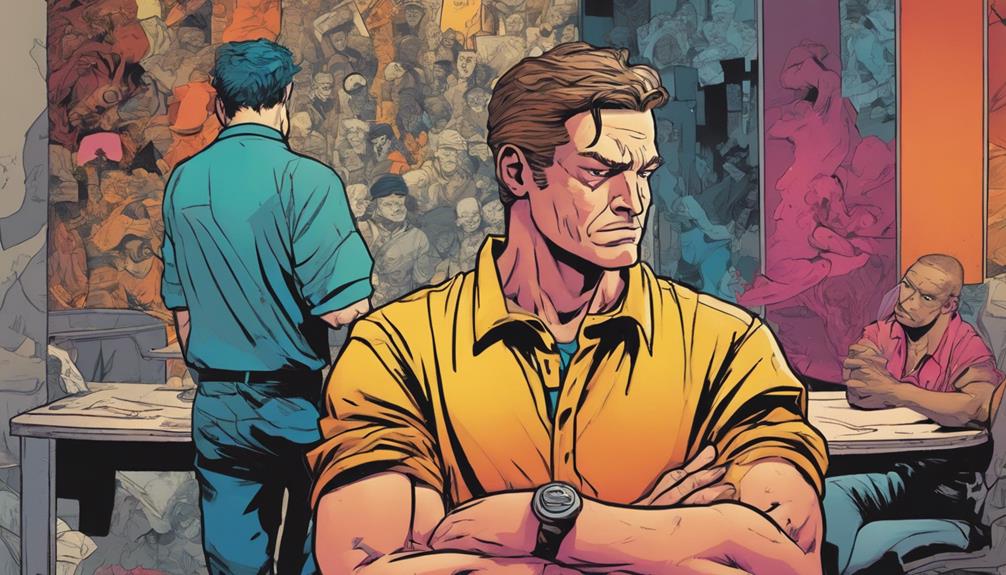Revealing the secrets of critical thinkers means embracing key traits that drive their effective decision-making. You'll find that observation and analytical skills help them evaluate information carefully. Their curiosity leads to deeper exploration, while open-mindedness allows for diverse perspectives. Self-awareness enhances their understanding of personal biases, and effective communication guarantees clarity in expressing ideas. They tackle problems systematically, weighing pros and cons with creativity. A commitment to continuous learning further fosters adaptability and growth. By exploring these characteristics, you'll uncover how to enhance your own critical thinking skills for informed choices and smarter solutions.
Key Takeaways
- Critical thinkers utilize observation and analytical skills to evaluate information and recognize patterns for informed decision-making.
- Curiosity drives critical thinkers to explore diverse perspectives, challenge assumptions, and seek innovative solutions.
- They maintain objectivity and awareness of biases, ensuring their judgments are based on facts and credible sources.
- Emotional intelligence and compassion enrich their communication, fostering collaboration and deeper understanding in discussions.
Observation and Analytical Skills
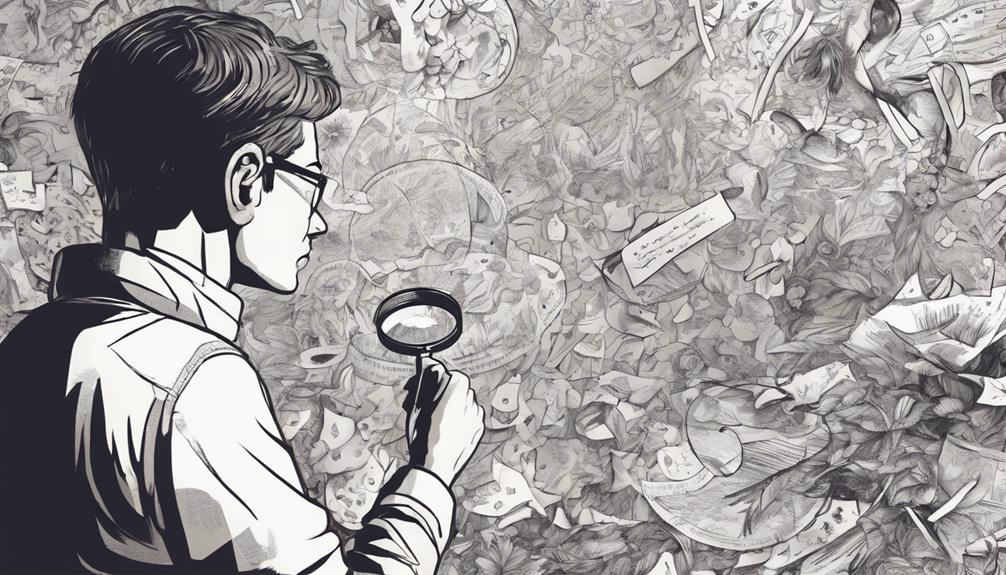
Observation and analytical skills are your first tools in critical thinking, helping you document details and understand the world around you. By honing these skills, you gather sensory data that leads to insights and deeper comprehension.
You'll recognize patterns and anomalies, forming a solid foundation for further analysis. Critical thinkers like you evaluate information carefully before drawing conclusions, ensuring that your decisions are informed.
You'll learn to identify biases in data interpretation, distinguishing between relevant and irrelevant information, which enhances your analysis. Structured approaches to data evaluation lead to a clearer understanding of complex issues.
Ultimately, developing these skills equips you to navigate challenges and make sound decisions in various aspects of life.
Curiosity and Intellectual Exploration

Curiosity drives you to dig deeper and explore beyond surface-level understanding, fueling your journey towards knowledge and insight. It encourages you to ask questions, challenge assumptions, and seek out new ideas.
By embracing your inquisitive nature, you cultivate open-mindedness, which allows you to reflect on diverse perspectives and foster innovation. Your intellectual exploration transforms learning into a lifelong adventure, propelling you to adapt and grow in an ever-changing world.
This quest for understanding not only enriches your knowledge but also inspires others to think critically. So, embrace your curiosity!
It's a powerful tool that empowers you to navigate complexities and uncover truths, ultimately enhancing your decision-making and problem-solving abilities. Immerse yourself and let your curiosity lead the way!
Objectivity and Bias Awareness

Understanding objectivity and recognizing biases are essential for making informed decisions in any analytical process. When you approach situations with a clear mind, you enhance your judgment and evaluation skills.
Here are three key points to reflect on:
- Focus on Facts: Use evidence and data to guide your conclusions, rather than emotions or personal opinions.
- Identify Personal Biases: Be aware of your own beliefs and how they might skew your perspective. This self-awareness enriches your understanding.
- Question Information Sources: Always evaluate the credibility and agenda behind the information you consume.
Introspection and Self-Awareness

Self-awareness is a powerful tool that helps you recognize your own thought processes and biases, enhancing your critical thinking skills.
By engaging in introspection, you can reflect on your emotional and mental states, allowing you to identify personal limitations and assumptions. This reflection sharpens your focus, promoting deeper insights into your motivations and decisions.
Regularly evaluating your thought processes enables you to understand how your biases influence your conclusions. You'll find that self-reflection not only improves your critical thinking but also fosters continuous growth.
Embracing this practice encourages a mindset of learning and adaptation, which is essential for becoming a more effective thinker.
Ultimately, the more aware you're of yourself, the better equipped you'll be to navigate complex situations.
Problem-Solving and Analysis

Effective problem-solving requires a systematic approach that combines analytical thinking with creativity to tackle challenges head-on.
To enhance your problem-solving skills, consider these key strategies:
- Identify the Root Cause: Don't just address symptoms; dig deeper to find the underlying issue.
- Evaluate Solutions: Assess multiple options by weighing pros and cons to guarantee the most effective outcome.
- Stay Adaptable: Be open to adjusting your methods as new information surfaces or circumstances change.
Compassion and Emotional Intelligence
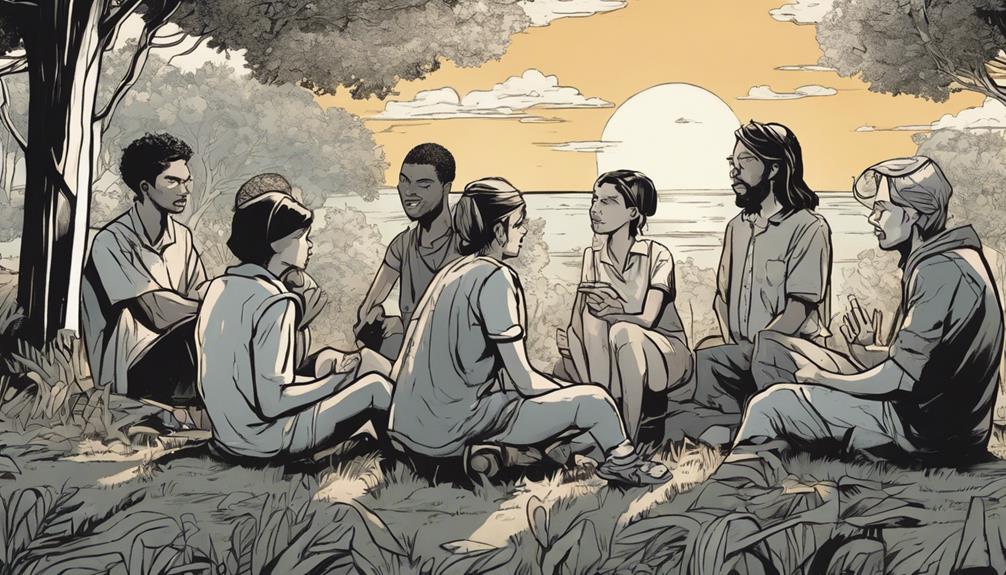
Compassion and emotional intelligence play essential roles in enhancing your critical thinking and problem-solving abilities. When you recognize the human element in every situation, it allows you to balance data analysis with a genuine concern for others. This understanding prevents cynicism and promotes a more holistic evaluation of challenges.
By developing empathy, you improve your communication and relationship-building skills, which are vital in collaborative environments. Self-regulation helps you maintain focus during discussions, ensuring that emotional triggers don't derail your thought processes.
Ultimately, cultivating compassion and emotional intelligence equips you to navigate complex issues more effectively, fostering a deeper connection with those around you and leading to more thoughtful, inclusive decisions.
Open-Mindedness in Perspectives

Embracing open-mindedness allows you to explore situations from multiple perspectives, fostering a deeper understanding of the complexities involved. By being open to new viewpoints, you can enhance your critical thinking skills and make more informed decisions.
Here are three key benefits of open-mindedness:
- Avoiding Hasty Judgments: You won't rush to conclusions, allowing for more thoughtful analysis.
- Encouraging Constructive Dialogue: Engaging with diverse opinions promotes richer discussions and collaboration.
- Willingness to Adapt: You're more likely to change your views when presented with compelling evidence, leading to personal growth.
Open-mindedness not only enriches your understanding but also cultivates a more inclusive environment for everyone involved.
Effective Communication Techniques
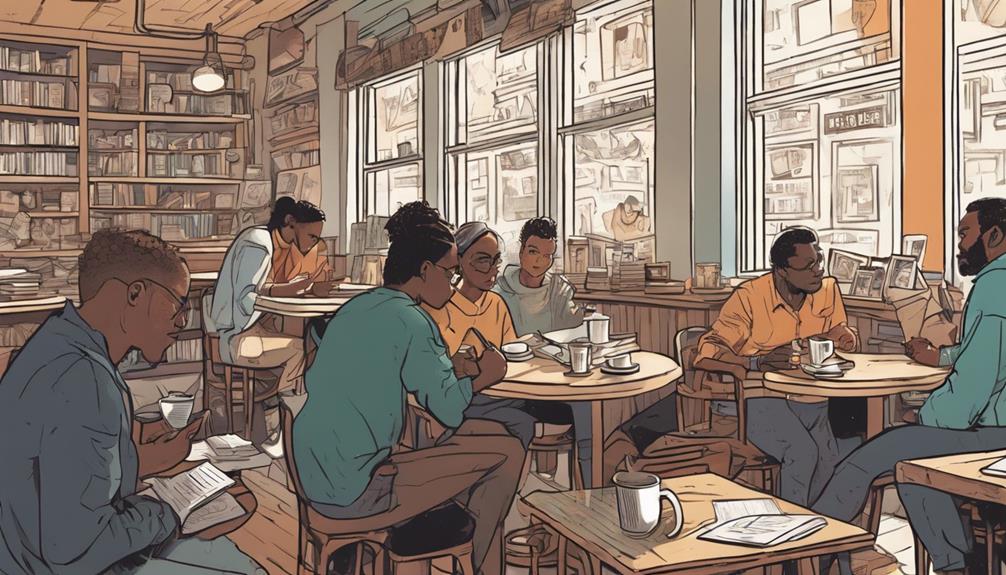
Clear communication techniques are essential for expressing your thoughts and fostering meaningful discussions. You should focus on articulating your ideas clearly and concisely, avoiding jargon that might confuse your audience.
Active listening plays an important role; engage with others' viewpoints and ask open-ended questions to deepen understanding. Pay attention to non-verbal cues, as they can enhance or undermine your message.
When presenting arguments, back them up with evidence and be open to feedback, which helps refine your communication. Remember, effective communicators not only share their thoughts but also understand others' reasoning.
This mutual exchange creates a collaborative atmosphere, making discussions more productive and insightful. Embrace these techniques to elevate your critical thinking and dialogue skills.
Decision-Making Strategies
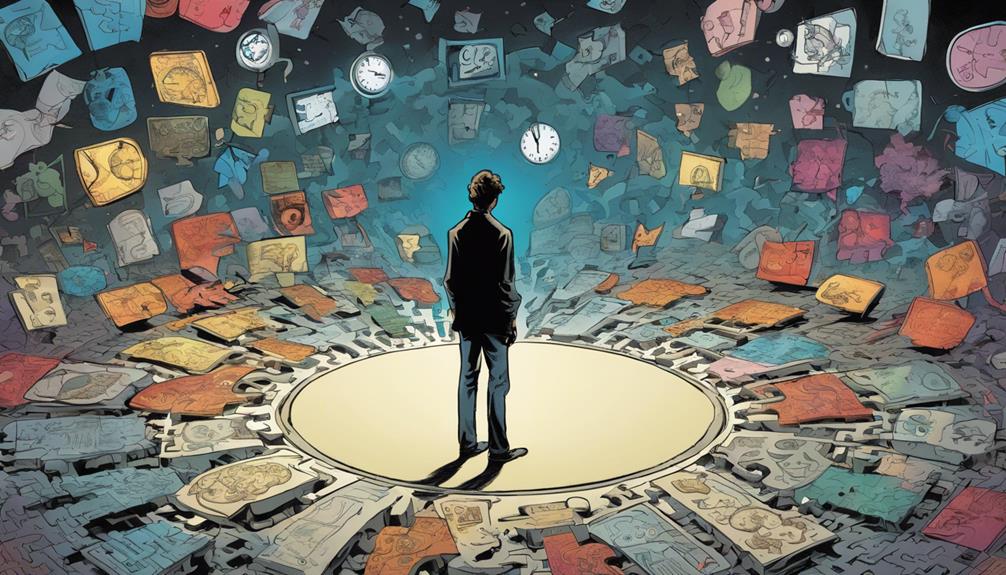
Weighing pros and cons is essential for making informed decisions that lead to positive outcomes. By employing structured decision-making strategies, you can enhance your ability to choose wisely.
Here are three effective strategies to contemplate:
- Evidence-Based Evaluation: Rely on data and facts rather than emotions to guide your choices.
- Risk Assessment: Identify potential risks associated with each option, helping you understand possible outcomes.
- Reflection on Past Decisions: Analyze previous choices to inform your current decision-making process.
These strategies not only improve your decision quality but also build confidence in your ability to navigate complex situations.
Embracing Continuous Learning

Continuous learning enhances your decision-making skills and keeps you adaptable in an ever-changing world.
By embracing new information and experiences, you cultivate a growth mindset that encourages ongoing development. This commitment to self-improvement not only enriches your knowledge but also strengthens your problem-solving abilities.
Reflecting on past experiences helps you make informed choices and adapt to challenges more effectively. Engaging with diverse perspectives fosters innovation and creativity, allowing you to challenge the status quo.
As you seek out learning opportunities, you're better equipped to navigate complex situations and make sound decisions. Remember, every experience is a chance to grow, so stay curious and open to learning throughout your journey.
Can Inspiring Quotes Help Improve Critical Thinking Skills?
Need to revitalize your workday with inspiring quotes? Reading thought-provoking quotes can stimulate critical thinking skills by challenging your perspective and sparking new ideas. They can help improve problem-solving, decision-making, and creativity, ultimately leading to a more dynamic and innovative approach to your work.
Conclusion
By embracing the principles of critical thinking, you'll release a transformative power that can illuminate even the darkest corners of uncertainty.
Your enhanced observation skills, curiosity, and open-mindedness will elevate your decision-making to stratospheric heights.
Remember, it's not just about solving problems; it's about fostering a mindset that thrives on continuous learning and growth.
As you commence on this journey, you'll discover that the secrets of critical thinkers can turn every challenge into an opportunity for greatness.





